As online learning begins March 23, Clark professors offer words of encouragement to their students.
Gino DiIorio, Visual and Performing Arts
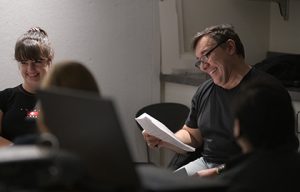 This experience has really highlighted what is special about Clark. We learn a lot about our students, we teach in small class settings, we know them well over the course of four years. One thing we’re all aware of is how much we miss our students and how much they need to see us and their classmates. As a faculty, we’re perhaps less focused on pedagogy, more focused on “How are you?” It’ll be good to see our students again, even if it’s over Zoom.
This experience has really highlighted what is special about Clark. We learn a lot about our students, we teach in small class settings, we know them well over the course of four years. One thing we’re all aware of is how much we miss our students and how much they need to see us and their classmates. As a faculty, we’re perhaps less focused on pedagogy, more focused on “How are you?” It’ll be good to see our students again, even if it’s over Zoom.
Abbie Goldberg, Psychology
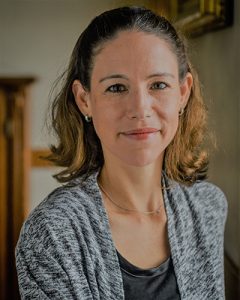
As we approach this experience together, my hope is that we all learn a bit about our own and each other’s capacity for creativity, adaptation, and compassion. I miss my students terribly, and I wish that we could have the experience that I mapped out so planfully for our semester. But, we can’t. So, I’m adapting: trying new teaching approaches, learning new technologies, reaching out to colleagues at other universities for video “guest lectures,” etc. And, students are adapting, too. I hope we can meet this new challenge with optimism, humor, and warmth, and come out stronger and more united on the other side.
Wayne Gray, Economics
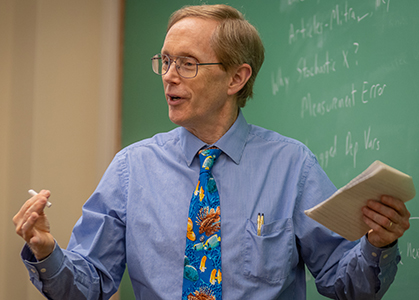
I’d like to encourage students to feel free to reach out to your teachers if and when issues arise. We are all working to overcome the unavoidable disruptions, and I hope we will succeed in making this a successful semester — in addition to a highly memorable one!
Donald Spratt, Chemistry
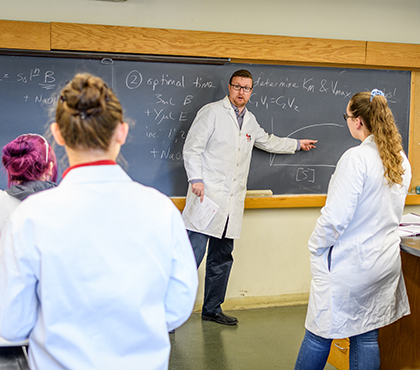
Being a scientist, I love experiments — the next week will be a big experiment for all of us. Patience, understanding, flexibility, and keeping open lines of communication – all of these will be important things I will keep in mind. I want my students to know that I am here to support them and I will strive to give them the best education I can over the next six weeks.
Nina Kushner, History
 We faculty know that the very best situation right now for students is still extremely difficult. Even if you were able to go home, have internet connectivity, no heavy responsibilities and a quiet place to work, you have still been uprooted and are having to figure out how to live in a pandemic. But faculty are also keenly aware that many of you are really struggling. Not everyone has a quiet, safe place to live or work. For some, internet connectivity is real issue. Some of you are now caring for others. Some of you need care yourselves that is no longer easily accessible. We are committed to getting you through the end of the semester, keeping you engaged, and lowering your stress levels in any way we can.
We faculty know that the very best situation right now for students is still extremely difficult. Even if you were able to go home, have internet connectivity, no heavy responsibilities and a quiet place to work, you have still been uprooted and are having to figure out how to live in a pandemic. But faculty are also keenly aware that many of you are really struggling. Not everyone has a quiet, safe place to live or work. For some, internet connectivity is real issue. Some of you are now caring for others. Some of you need care yourselves that is no longer easily accessible. We are committed to getting you through the end of the semester, keeping you engaged, and lowering your stress levels in any way we can.
Shuo Niu, Computer Science
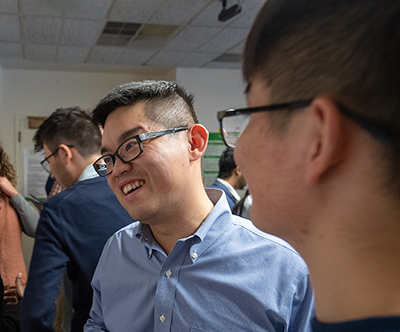 To my students: It must be a difficult and chaotic time in your life. But you should believe that the number of solutions is always greater than the number of problems. Although your professor is physically away from you, we can always stay virtually together. As you are learning computer science technologies, I hope this virtual learning experience during this global disaster can inspire you to think about technology solutions to support our community and society.
To my students: It must be a difficult and chaotic time in your life. But you should believe that the number of solutions is always greater than the number of problems. Although your professor is physically away from you, we can always stay virtually together. As you are learning computer science technologies, I hope this virtual learning experience during this global disaster can inspire you to think about technology solutions to support our community and society.
Meredith Neuman, English
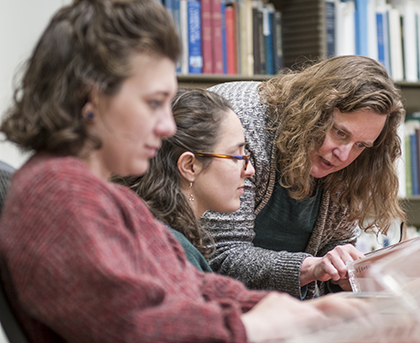 If I had one piece of advice for students, it would be to communicate the challenges that you perceive in your current situation and anticipate that there might be challenges coming up. If you have problems with your internet or are having a difficult time finding a private space to work, don’t hide that, don’t treat that like a problem that is just for you to solve. The more you communicate with your faculty members, the more we can help you with adjustments and problem-solving and flexibility.
If I had one piece of advice for students, it would be to communicate the challenges that you perceive in your current situation and anticipate that there might be challenges coming up. If you have problems with your internet or are having a difficult time finding a private space to work, don’t hide that, don’t treat that like a problem that is just for you to solve. The more you communicate with your faculty members, the more we can help you with adjustments and problem-solving and flexibility.
Rosalie Torres Stone, Sociology
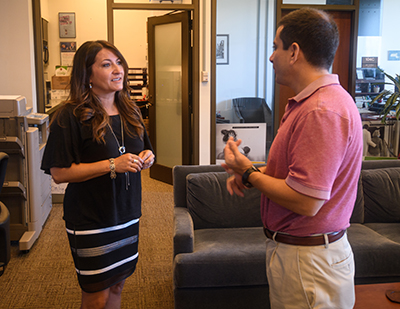
To my students: I didn’t get to say goodbye in person and for that I’m incredibly sad, but this isn’t about me. My heart is breaking for some of you. This is less than ideal, but I promise you that we will get through this together. I am committed to do whatever I can to help you finish the course. I will miss our in-person interactions and seeing you in class! You’re a great group of students. Some of you are still trying to hand in your weekly summaries – please don’t worry about that right now. We are postponing all assignments until further notice – just focus on your transition. I’ll be in touch in a week.” I reassured my students that remote learning would not take away from the learning objectives set forth in this course. I also reassured my students that I’d be able to handle remote learning. I got this!
David Hibbett, Biology
 Our students have been great. A number of them have expressed their thanks for the adjustments that we are making. This is really moving, considering that they are also dealing with a major upheaval in their lives. I’ve always found Clark students to be kind and humane, and that is certainly showing through now.
Our students have been great. A number of them have expressed their thanks for the adjustments that we are making. This is really moving, considering that they are also dealing with a major upheaval in their lives. I’ve always found Clark students to be kind and humane, and that is certainly showing through now.
Anita Fábos, International Development and Social Change
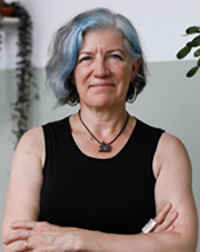 I think the best thing I can do as a teacher now is to think of ways to align the analytical and practical skills our students are developing with our new context. Cultures of Exile asks students to understand exilic experiences as part of the human condition, and to explore how we make meaning from these experiences. Understanding and Responding to Migrant/Refugee Challenges focuses on collaborative, multi-stakeholder approaches to addressing the reality of human movement, displacement, and emplacement. Migration, Sustainability, and Transformation asks all of us to find ways to create socially and environmentally sustainable communities that include caring for the movers among us. I think about this last point a lot because of the huge burden our students have faced to move somewhere else in the face of the COVID-19 crisis. For nine months of each year, our students make the home at Clark and in Worcester — indeed, college students collectively are Worcester’s biggest group of migrants. Having been sent away to places that may no longer be their primary focus for home-making, our absent students leave the fabric of our communities a little more threadbare.
I think the best thing I can do as a teacher now is to think of ways to align the analytical and practical skills our students are developing with our new context. Cultures of Exile asks students to understand exilic experiences as part of the human condition, and to explore how we make meaning from these experiences. Understanding and Responding to Migrant/Refugee Challenges focuses on collaborative, multi-stakeholder approaches to addressing the reality of human movement, displacement, and emplacement. Migration, Sustainability, and Transformation asks all of us to find ways to create socially and environmentally sustainable communities that include caring for the movers among us. I think about this last point a lot because of the huge burden our students have faced to move somewhere else in the face of the COVID-19 crisis. For nine months of each year, our students make the home at Clark and in Worcester — indeed, college students collectively are Worcester’s biggest group of migrants. Having been sent away to places that may no longer be their primary focus for home-making, our absent students leave the fabric of our communities a little more threadbare.



